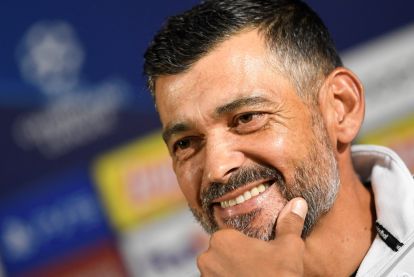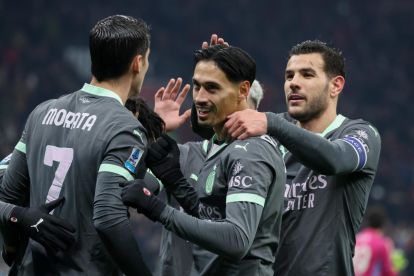Best IPTV Deals & Subscriptions at https://tvdeals.store
Sergio Conceição claimed he is ‘proud’ to have been chosen as the new Milan manager but is also aware that his appointment mid-way through the season is ‘not a good sign’, as it means that several things ‘are not working’.
The Rossoneri decided to sack Paulo Fonseca in the immediate aftermath of their 1-1 draw against Roma on Sunday and announced their replacement less than 24 hours later, and the former Porto boss knows that he’ll have little time before his side takes on Juventus in the Supercoppa Italiana, but he ‘won’t complain or look for excuses’.
Asked about the most distinctive features that his team should have in his first press conference at the club, Conceição mentioned ‘spirit and mentality’, explaining his players will have to live every match as ‘intensely’ as he does.

Conceição: Milan a ‘step forward’ in my career, spirit and mentality ‘non-negotiable’.
“I’m proud. It’s a pleasure for me to come and work for such an important team,” the 50-year-old told reporters during his unveiling press conference.
“For me, it’s a pleasure, a source of pride, and a step forward in my career and that of my staff.
“The fans are the soul of the club. Without them, it’s hard to live and grow, and we must respect these values, work in this spirit, and prove ourselves worthy of Milan.
“If I’m here, it’s not a good sign; it means something hasn’t gone well. There’s not much time to prepare for the match against Juventus. We won’t complain or look for excuses.
“We can change the system, but beyond that, there’s the spirit and mentality, which are non-negotiable. This hunger to finish the match knowing we’ve given everything to win is non-negotiable.
“I live the match intensely, and I want my players to do the same, just like the fans. That’s the path to take. Their eyes should shine when they walk into Milanello.
“There’s no single issue; there are many things that aren’t working.
“Some prefer to talk about tactics, others about physical or mental problems. Paulo [Fonseca] had great moments here and others not so much, but that’s part of a coach’s job.
“We always strive for perfection, but it’s not possible. We play against quality opponents, both in Italy and in the Champions League, but we’re prepared for this. I don’t want to go into details.”

According to summer reports, Conceição was already a candidate for the Rossoneri job before the club eventually decided to hire Fonseca, but the new coach explainedn that ‘timing isn’t important’ and he ‘couldn’t say no’ to Milan this time despite having ‘other opportunities’.
“My situation with Porto wasn’t an easy exit,” he continued.
“For me, timing isn’t important. In the summer, every week, a club was interested in me; they always talk—it’s normal—because news comes out and we can’t control that.
“For me, Milan’s timing wasn’t important. It all happened very quickly. Why did I come to Milan? I’m coaching one of the best teams in the world. I couldn’t say no, even though I had other opportunities that I respect greatly.”
A former player who had stints in Serie A for Lazio, Parma and Inter, Conceição acknowledged that working as a manager is ‘completely different’ and explained their footballers should expect someone ‘direct’ who has no fear of taking bold decisions.
“It’s completely different,” the Rossoneri boss said.
“When we’re players, we think we understand everything about football, but we don’t. We think only about our own area.
“As a coach, you don’t even sleep; for me, last night was tough. The stress of wanting to know everything here, the people, because everyone matters, from the kit man to our president.
“My staff and I are eager to fast-track our understanding of everything and everyone because time is short, and we want to be present and active.

“I don’t need to change now; I’m 50 years old. Changing now is difficult. I’ve been a coach for 13 years; I didn’t start yesterday.
“They know they have someone direct in front of them. There will always be 11 happier players and those on the bench less so. But this is part of group management: direct communication and maximum effort in training.
“They might be a bit sad not to play, but that should give them strength, just like the pressure, which is part of being in a big club. We’re confident we’ll do a good job, but words are just words; results are what matter.”

